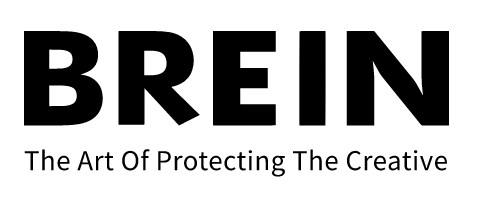 Supported by Hollywood and other content industries, Dutch anti-piracy group BREIN has a long and well-established track record.
Supported by Hollywood and other content industries, Dutch anti-piracy group BREIN has a long and well-established track record.
The group’s actions regularly make it into our headlines, but there is also a lot of work carried out behind the scenes.
BREIN has just published its latest annual report, providing insights into the priorities of the organization and the progress being made. This was BREIN’s final year under the leadership of Tim Kuik, who recently handed his life’s work to the organization’s new director, Bastiaan van Ramshorst.
610 ‘Shutdowns’
Looking at the latest numbers, we see that the anti-piracy group has closed the books on a very productive year. In total, BREIN completed 615 investigations, which resulted in the shutdown of 610 illegal sites and services.
These targets include 501 proxies and mirrors, 14 pirate streaming sites, 14 IPTV/VOD sellers, as well as 23 uploaders, scripters, and operators who were connected to various pirate sites.
The remaining offenders include a wide variety of pirate sites and services such as Usenet indexers, pirate apps, cyberlockers, Facebook groups, stream-rippers, as well as old school open directories. These are typically quite small ‘operations’ but the takedowns still add up.
BREIN also kept a close eye on advertisements for pirate services and other illegal offerings. A total of 3,739 advertisements were flagged and reported, a figure that has been relatively stable over the years.
Google Takedowns & Site Blocking
The same can’t be said for search engine removals. In 2023, BREIN helped to remove 132,455 links to pirate sites from third-party search engines such as Google. That’s down significantly from last year, further still when compared to years earlier.
From an enforcement perspective, the decline is considered a positive. As reported previously, Google now delists entire domains from search results in countries where ISPs are required to block those platforms.
This means that The Pirate Bay and many of its proxies and mirrors no longer show up in Google. The same applies to other blocked sites; following requests from BREIN, in 2023 Google completely delisted 256 domain names already blocked by ISPs in the Netherlands,
“The ‘delisting’ […] is equivalent to millions of search results that can no longer be seen in the search engine and therefore no longer have to be reported by BREIN. On balance, the number of permanently deleted Google search results has increased to many tens of millions,” BREIN writes.
The new delistings were in part the result of the Lookmovie and Flixtor blocking order that was obtained last year. With the previously blocked Pirate Bay, 1337x, LimeTorrents, YTS, RARBG, Kickasstorrents and EZTV, the total has now reached nine sites and hundreds of proxies.
Next year, this will increase further, as a recent order added shadow libraries ‘Anna’s Archive’ and ‘LibGen’ to the Dutch blocklist.
Knock Knock…
The full annual report includes many more details and nuances. For example, BREIN also completed 41 settlement agreements, mostly with site operators or uploaders. Twelve of these were the result of ‘knock & talks’, where the alleged pirates received a home visit.
BREIN tends to be fairly pragmatic with its settlement approach. The ultimate goal is to stop the infringements. Offenders typically have to agree to stop their activities, or face a hefty penalty if they continue.
Ideally, the anti-piracy group would like offenders to cooperate, but that doesn’t always work as planned.
Last year, BREIN used previously obtained information about a pirate script seller to identify several new uploaders and site owners. One of those individuals chose to settle for a higher fee, rather than expose the person who sold the script. Ultimately, however, the ‘protected’ scripter was caught.
Finally, it’s worth mentioning a large criminal prosecution of an IPTV operation, where the originating complaint was filed by BREIN. This case, which is still pending, took down an entire datacenter and resulted in several arrests.
These types of copyright-related criminal prosecutions are rare in the Netherlands, and this was the largest of its kind in the country.
“Illegal IPTV is the most serious threat to legal offerings of movies, series, television and sports broadcasts. This case involves a criminal organization behind the large-scale sale of more than 1 million IPTV subscriptions in the Netherlands, among other countries,” BREIN writes.
Finally, BREIN also had one of its largest ever setbacks last year. In a Usenet-related lawsuit, a provider that had already shut down years before ended up with a moral victory.
After a legal battle of 14 years, the Dutch Supreme Court concluded that Usenet provider NSE was not liable for copyright infringement. The fact that NSE had a takedown procedure and no apparent knowledge of infringement, weighed in its favor, and BREIN was ordered to pay €65,000 in legal fees.
—
A copy of BREIN’s latest annual report in available here, in Dutch





